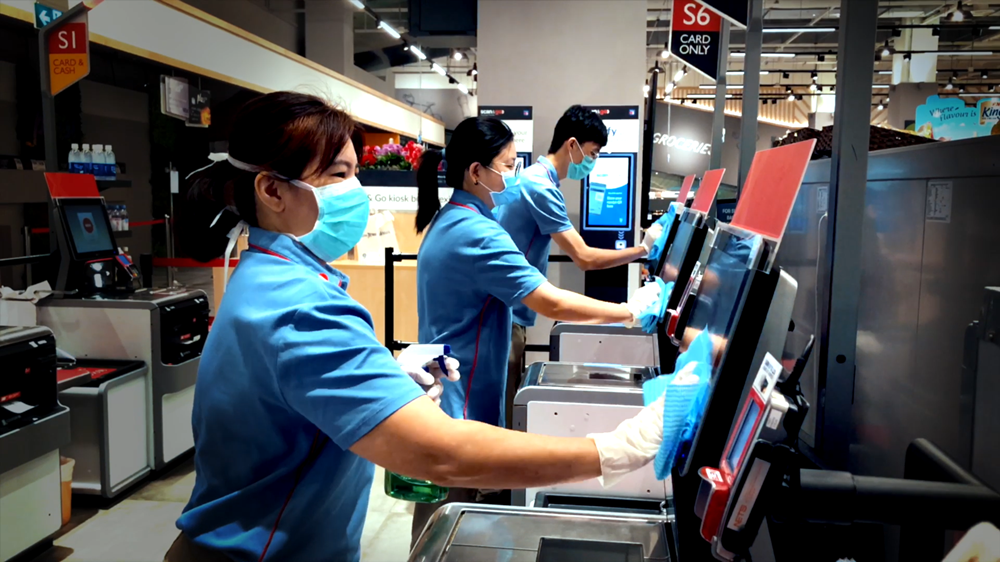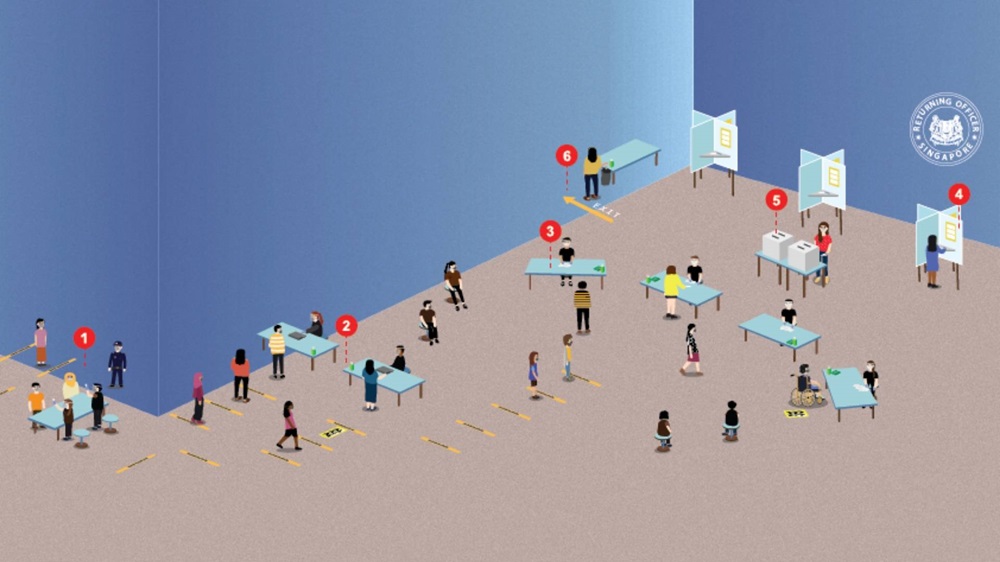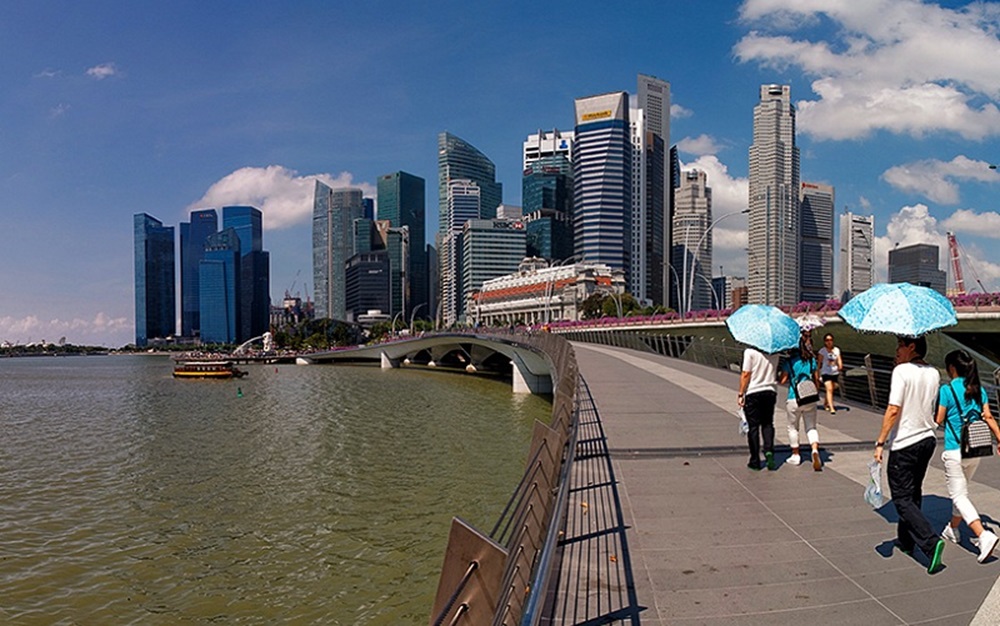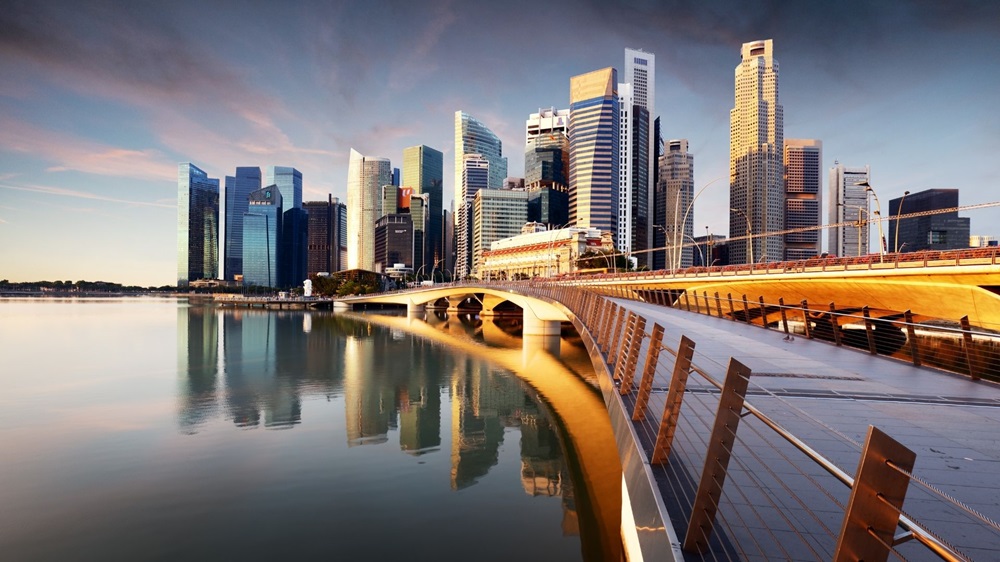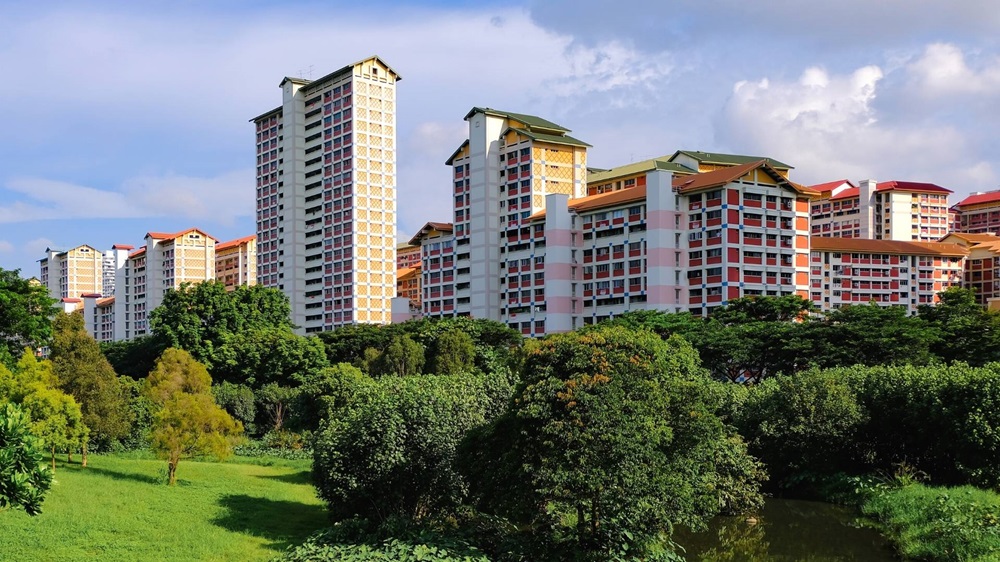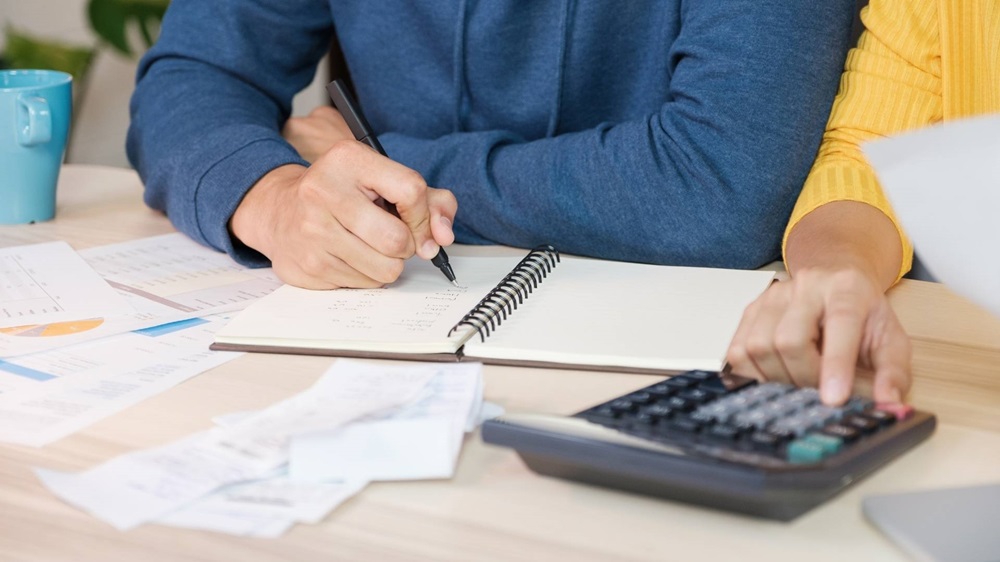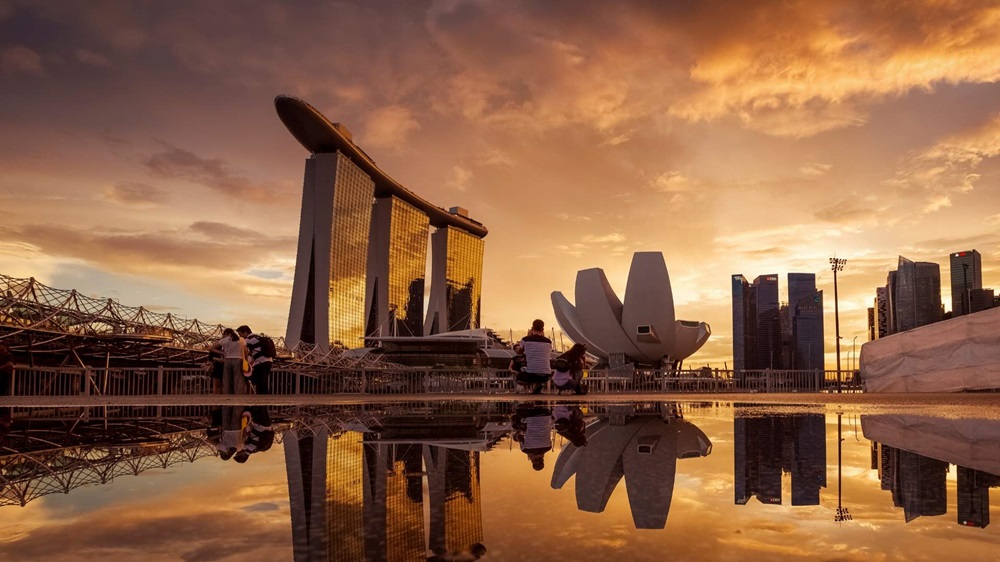
- PM Lee spoke about the impact of COVID-19 on Singapore. It is not only a public health issue, but also a serious economic, social and political problem.
- The Government has intervened through four successive Budgets to protect workers, households and companies. However, these measures cannot shield us from tectonic shifts in the global economy.
- But we can be confident. Singapore has economic strengths and an international reputation built up over many decades, and a head start preparing for uncertainties with future economy strategies.
- We are rebuilding transport and trade links, and making our supply chains more resilient. We are also working to retain and attract talent and investments to contribute to our recovery.
- The Government’s priority is to help Singaporeans keep jobs or find new ones. We have to strengthen our social compact and improve our social safety nets.
- For Singapore to succeed, we need the unity and resilience of our people.
Full transcript:
My fellow Singaporeans,
Good evening.
Our fight against COVID-19 continues.
We have made good progress. In the community, new cases have come down. In the migrant worker dormitories, the situation has stabilised. Our healthcare system is coping well, thanks to the outstanding work of our healthcare professionals, and many others on the frontline. Most importantly, among both Singaporeans and migrant workers, we have kept fatalities low – one of the lowest rates in the world.
As a result, we have been able to move out of the circuit breaker. We are opening up our economy and society, progressively and safely. As we ease up, I expect the number of cases to rise somewhat, as has happened in other countries. So we are moving cautiously. We want to avoid the numbers shooting up again, and having to impose a second circuit breaker. We will step up testing and contact tracing significantly. Then we can catch new cases early, isolate them and their contacts, and stamp out clusters before they grow. If all goes well and the outbreak remains firmly under control, we will ease up further, and resume more activities as soon as possible. In the meantime, please continue to play your part: maintain personal hygiene and wash your hands frequently, wear a mask when you are out, and keep a safe distance from others and avoid crowded gatherings.
COVID-19 will remain a problem for a long time yet. It will take at least a year, probably longer, before vaccines become widely available. We will have to learn to live with COVID-19 for the long term, as we have done in the past with other dangerous infectious diseases, like tuberculosis. We also have to get used to new arrangements in our daily lives. We must all adjust the way we live, work and play, so that we can reduce the spread of the virus, and keep ourselves safe.
Economic Impact
But COVID-19 is not only a public health issue. It is also a serious economic, social and political problem. It is in fact the most dangerous crisis humanity has faced in a very long time.
Because of COVID-19, the global economy has virtually ground to a halt. Governments have spent trillions of dollars to support businesses, economies and jobs. Yet, tens of millions of jobs have been lost. Families are experiencing hardship. We are in a totally unprecedented situation.
Singapore has taken a severe hit too. Our GDP is likely to shrink between 4 and 7% this year, our worst contraction ever. To protect workers, households and companies, the Government has intervened decisively through four successive Budgets. We are injecting almost $100 billion – 20% of our GDP – the largest fiscal intervention in our history. Unlike other countries, we can draw on our reserves, and do not have to pay for our support measures by borrowing. But even for us, this level of spending is hard to sustain. More importantly, these measures cannot shield us from the tectonic shifts taking place in the global economy.
Singapore depends heavily on international trade and investments. These were already slowing down before COVID-19. Now this slowdown will happen faster, and go further.
We will not be returning to the open and connected global economy we had before, anytime soon. Movement of people will be more restricted. International travel will be much less frequent. Health checks and quarantines will become the norm. It will no longer be so easy to take quick weekend trips to Bangkok or Hong Kong on a budget flight. Industries that depend on travel, like aviation, hotels and tourism, will take a long time to get back on their feet, and may never recover fully.
Countries will also strive to become less dependent on others. Especially for essential goods and services, like food or critical medical supplies. This will have strategic implications. Countries will have less stake in each other’s well being. They will fight more over how the pie is shared, rather than work together to enlarge the pie for all. It will be a less prosperous world, and also a more troubled one.
All these developments will affect Singapore greatly. Since before the time of Raffles, we have made a living by connecting ourselves with the world. First, we were a trading hub, then an international seaport, then we made ourselves a hub for aviation, finance, and telecommunications. We have benefitted enormously from an open and connected global economy. Large parts of our economy – like manufacturing, biotech, financial services, and logistics – serve regional and world markets. Even many domestic sectors – like retail, F&B, and entertainment – rely heavily on tourism.
Now, we have to prepare for a very different future. Companies big and small will be hit hard. Some industries will be permanently changed. Many will have to reinvent themselves to survive. Workers too will feel the pain. Retrenchments and unemployment will go up. Some jobs will disappear, and will not come back. Workers will have to learn new skills to stay employed. The next few years will be a disruptive and difficult time for all of us.
We Can Be Confident
But despite these immense challenges, I say to you: Do not fear. Do not lose heart. Singapore will not falter in its onward march.
I believe we can still secure a bright future for ourselves. An even stronger and better Singapore will emerge from this crisis.
First, we have economic strengths and an international reputation built up over many decades. We are highly connected to the global flows of trade, investment, capital and people. International trade and investments may shrink, but they will not disappear entirely. Some flows will be diverted or dry up, but other new channels will open up. There will still be overseas markets, and opportunities for international partnerships. Singapore is well placed to connect ourselves to the new channels and flows, and create new businesses and jobs to replace those lost. We just have to work harder and smarter at it.
Our strong, trusted international reputation will help us greatly. In a troubled world, investors will value the assurance of a government that plays by the rules. A people who understand what is at stake and a stable political system that enables businesses to continue operating even in a crisis. The way Singapore has responded to COVID-19 – openly and transparently, neither avoiding reality, nor acting arbitrarily at the first sign of trouble – has only strengthened this advantage.
Second, we have had a head start preparing for the uncertainties ahead. For some time now, we have been working hard to transform and deepen our capabilities. Developing plans for our Future Economy, investing heavily to upgrade our workers through SkillsFuture, digitalising both the private and public sectors, building our innovation and R&D capabilities. All this has enabled us to stand out in Asia and the world. Nobody can predict what exactly the world will look like after COVID-19 but however things turn out, these Future Economy strategies will stand us in good stead. We need to pursue them even more vigorously now. For instance, we know that many businesses will no longer be viable. We will support these businesses to transform themselves, change their business models, or move into different and more promising fields.
More immediately, we are systematically rebooting our economy, as countries emerge from lockdowns. We are rebuilding our transport and trade links. For example, Changi has already resumed transit flights. We are working out Reciprocal Green Lane arrangements for safe travel to China and other countries. We are making our supply chains more resilient. For example, we are diversifying our sources of food. We are even buying eggs from Poland, and shrimps from Saudi Arabia.
Next, we are working hard to retain and attract talent and investments to contribute to our to our recovery. At a time when some countries are closing their doors, we are keeping ours open. By making the most of our head start, our workers and industries will survive the crisis better, and bounce back faster and stronger.
Third, we have programmes and plans to cope with the challenges before us. The government’s biggest priority now is jobs – helping Singaporeans to keep their jobs, or find new ones. We are particularly concerned about those in their 40s and 50s, who are often supporting children and elderly parents at the same time, and have financial commitments to meet. We are also concerned about mature workers nearing retirement, who want to work for a few more years, to build up their nest egg for old age. Lower income workers, who have not much savings to fall back on. The self-employed and freelancers, who have less jobs and income security in the gig economy and fresh graduates who are entering the job market in a very difficult year.
We have schemes to help all these groups. The Job Support Scheme, the Workfare Special Payment, the Self-Employed Person Income Relief Scheme (SIRS), the COVID-19 Support Grant and the SGUnited Jobs and Skills Package. These schemes have enabled people to hold on to their jobs, and provided income support for millions of Singaporeans and their families.
We have set up a National Jobs Council, to pull together and drive all our efforts on jobs, and look at how we can create new jobs for the economy. Senior Minister Tharman Shanmugaratnam is leading this. The Council will coordinate all the Government agencies involved, and bring in NTUC and the employer groups too, to maximise the impact of our efforts. So if you need a job, there are real options to pursue, and you will have help and support.
Beyond COVID-19, and the economic challenges, we also have to deal with other important external and domestic issues. Externally, we have to navigate the changing strategic landscape. COVID-19 has worsened relations between the US and China. Actions and counter-actions are raising tensions day by day. It will become harder for countries to stay onside with both powers. It will be a more dangerous world for a small country like Singapore. We must ensure our security, and protect and advance our interests when dealing with other countries, big and small. We must also work with like-minded countries to support free trade and multilateralism, and enhance our voice and influence in the world.
Domestically, we have to strengthen our social compact. We have taken emergency measures to help everyone come through the crisis together. Beyond that, we have to think carefully how to improve our social safety nets. Sustainable social support will give people confidence to cope with the uncertainties and to make changes to their lives. At the same time, everyone must have the incentive to be self-reliant, and to progress through their own efforts. We have difficult decisions to make on priorities, resources, and budgets but the values guiding us remain the same: every Singaporean will have equal opportunities. Whatever your starting point in life, you will have access to good education, healthcare, and housing. If you fall down, we will help you to get up, stronger. You can be sure you will be taken care of. In Singapore, no one will be left to walk his journey alone.
In the next few weeks, several Ministers will address you, and share with you our plans. We have a full agenda for many years to come.
For our plans to succeed, for our hopes and dreams to come true, we need one final ingredient: the unity and resilience of our people. Once in a while, nations and peoples are severely tested, as we are now. Some buckle under pressure and emerge from crisis diminished. Others grow more determined as they face fearful odds, discover reserves of strength in themselves, and emerge from crisis transfigured, renewed. And that has been our Singapore story: in crises, we have never failed to wrest opportunity from danger.
Indeed, our nation was born in crisis. When we were granted independence, it was in the expectation that we would fail and come crawling back, after realising we could not survive alone. We proved otherwise. Two years later, the British suddenly announced that they were withdrawing their forces from Singapore. Again, many thought that would be the end of us. And again, we proved them wrong. The Pioneer Generation fought to master their destiny. And the Merdeka Generation put heart and soul into making Singapore succeed. Together, they weathered many storms, always looking ahead, never flinching at hard choices and challenges. And that is how we got here.
Now, at another hinge in our history, it is our turn to face the crisis of a generation. The choices that we make now will define who we are as a people, and what values and ideals we pass on to future generations. Confronting adversity, do we yield to anger, fear and bitterness? Or will we be true to ourselves, stand firm, make tough choices, and continue to trust and depend on one another.
Many Singaporeans have stepped up during this crisis. They have become more, not less, than themselves. Healthcare workers, public officers, grassroots leaders and volunteers, and many more working quietly behind the scenes. Some are taking good care of migrant workers in the dorms. Others are sewing masks, buying groceries for families under quarantine, or refurbishing computers for needy students to do Home-Based Learning. Abroad, Singaporeans have driven hundreds of kilometres to pick up fellow citizens to catch SQ flights home. These acts of solidarity and human kindness exemplify the best in us. They show how we can emerge stronger from this crisis, with a sharper consciousness of being Singaporean.
crisis. They have become more, not less, than themselves. "
This is why I believe we can continue to be exceptional – a fair and just society, where everyone can chase their dreams. My Cabinet team, with the support of the whole public service, will do our best to lead us towards this enduring vision of what Singapore can be. We need every one of you to work with us. Together, let us take Singapore safely through this crisis, and make the Singapore spirit flourish in the world.
Thank you.
…..
From 7 to 20 June 2020, Prime Minister Lee Hsien Loong, Deputy Prime Minister Heng Swee Keat, Senior Ministers Teo Chee Hean and Tharman Shanmugaratnam, Minister Chan Chun Sing and Minister Lawrence Wong will deliver a series of national broadcasts, explaining what a post-COVID-19 future looks like for Singapore.
Click here for the other speeches.
RELATED ARTICLES
We use cookies to tailor your browsing experience. By continuing to use Gov.sg, you accept our use of cookies. To decline cookies at any time, you may adjust your browser settings. Find out more about your cookie preferences here .









